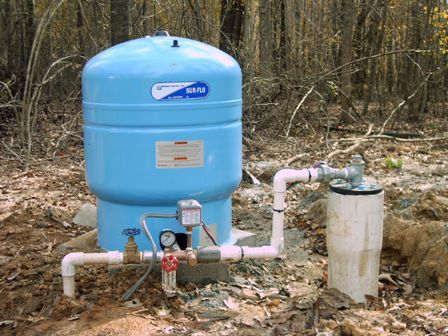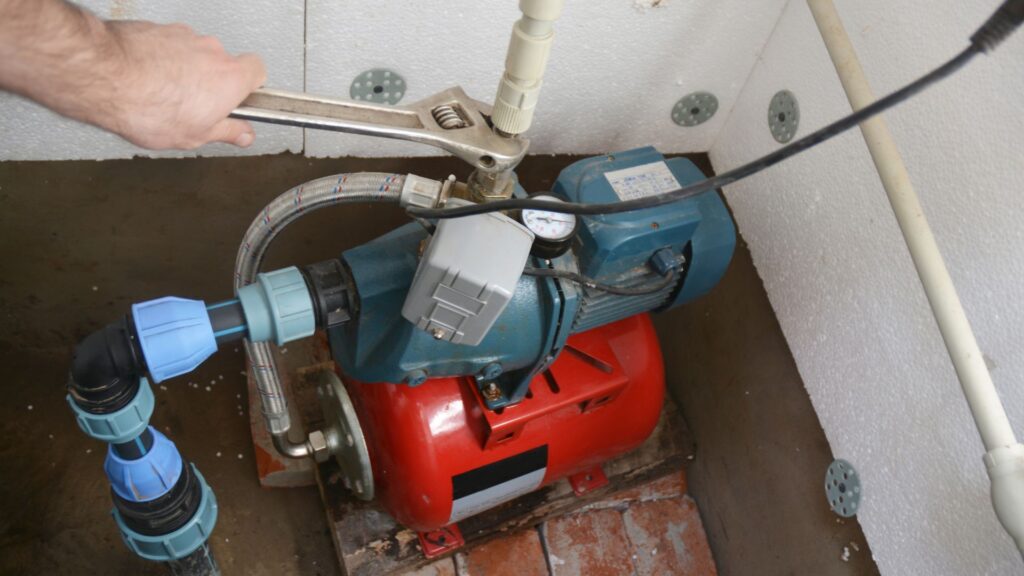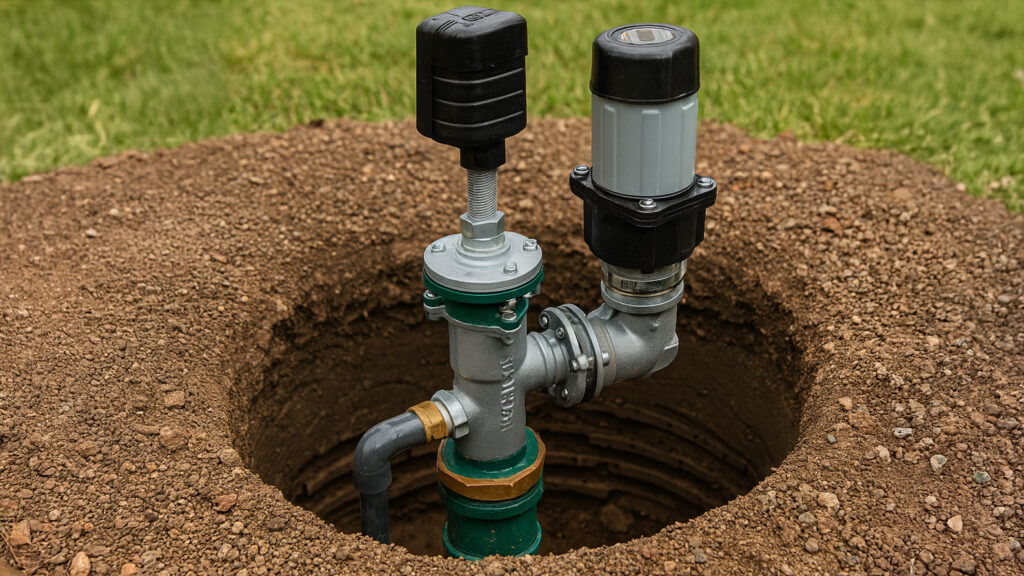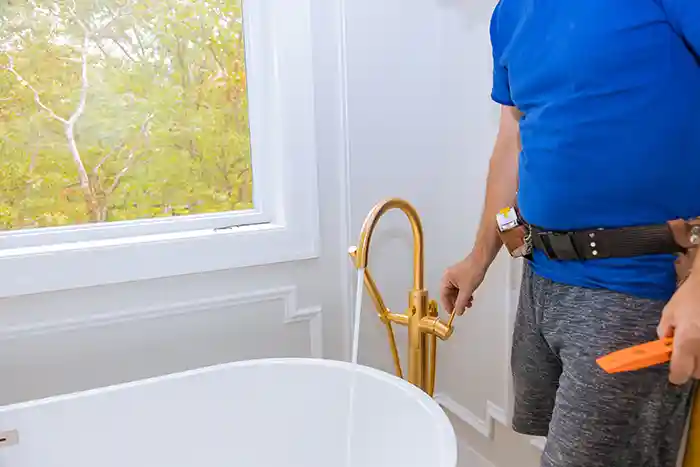Get Well Pump Repair Service
If You Want the Best Well Pump Service in the Triangle, Call Carolina Plumbing Today at 919-563-3709.
Free Estimates | Well Pump Repair Service
EXCELLENTTrustindex verifies that the original source of the review is Google. We've been so pleased with Brian and Kayden's plumbing repairs, and recently they connected a new bathroom vanity for us. They stayed late in order to complete the job. We can always count on getting good service and we recommend them to others.Posted onTrustindex verifies that the original source of the review is Google. We just had Glenn and Dave to the house to perform the tankless hot water flush and inspection service. This team is outstanding. They arrived on time , explained everything that they were doing and even fixed a minor issue with the flushing valve that was not right from the original install. It was refreshing to meet professionals that are also very pleasant to speak with. I'm very pleased with the work they performed and would absolutely recommend Carolina Plumbing and will have them back when the water heater needs service again. Thank you to both Glenn and Dave. Much appreciated!Posted onTrustindex verifies that the original source of the review is Google. I discovered I had no water late on Saturday, and within a few minutes- I had a plumber on the way. It was the pressure switch and tank that was the issue. He got the water on again and returned early Sunday morning to replace the defective parts. I was texted before each trip and they were prompt. I want to add this was the hottest weather we’ve had and they worked in some rough conditions! I would recommend them to anyone, fantastic people and excellent customer service!Posted onTrustindex verifies that the original source of the review is Google. Carolina Plumbing did a fantastic job replacing my well tank! Great price, great customer service, and great work - and they got it done fast! They are my go-to now for all my plumbing needs. Thank you!Posted onTrustindex verifies that the original source of the review is Google. Fast and friendly service. Great business!Posted onTrustindex verifies that the original source of the review is Google. Back in 2020, Glenn from Carolina Plumbing saved the day with my pressure tank. He was there the same day, quickly diagnosed the problem, and offered both immediate and long-term solutions. He even returned that very day to complete the permanent repair, handling everything with efficiency and professionalism. His clear explanations and courteous demeanor made it obvious he'd be my plumber for life. In 2023, when my water treatment system failed, they were just as responsive and fixed it rapidly. And this year, during a bathroom renovation hiccup, Glenn and his team stepped in to install a bathtub and a tankless water heater. They expertly coordinated with Mebane Electric and Enbridge Gas, ensuring seamless service and no hot water interruptions. Their speed, communication, and dedication to customer satisfaction are unmatched. For any plumbing needs, Carolina Plumbing is the only call you need to make.Posted onTrustindex verifies that the original source of the review is Google. I have been doing business with Carolina Plumbing for over 30 years, and can speak to the company, and their staff from many first hand experiences. Rick, who started the company is a wonderful, very honest man with the highest integrity. Glenn, who is now running things, is made from the same cloth. They have always been very dependable, and forthright with their estimates, and more importantly with their quality workmanship. They are very dependable with regard to time slots on arrival times. Last, their office support staff is absolutely wonderful, and very courteous, and professional. I cannot recommend them highly enough for those of you who want to establish a relationship with a dependable, forthright plumbing company. Ron ClarkPosted onTrustindex verifies that the original source of the review is Google. Excellent Service! They did a great job on my water heater, and kitchen sink. Highly recommended!Showing our latest reviews

Regular Maintenance & Well Pump Repair
Well pumps are built to last, especially with regular maintenance and proper care. However, even the most reliable systems can develop issues over time making professional well pump repair nearby a smart move. If you suspect damage, the first step is to turn off the pump and contact a qualified technician. Common signs of trouble include low water pressure, strange noises, or visible leaks. Whether your system needs well pump repair or a full well pump replacement, getting expert help ensures your water supply is restored safely and efficiently.
Free Estimate
Repair or Replacement
Warrantee & Support
Trained Well Pump Technicians
If you’re experiencing issues with your well pump system, it’s essential to understand the key components before assessing the damage. Critical parts like the well casing, pressure tank, pump motor, and control box all play a role in keeping your water supply running smoothly. Because well pump systems involve multiple interconnected components, problems can show up in different ways—such as reduced water pressure, visible leaks, or unusual noises when the pump activates. These are common signs that your well pump may need repair. To avoid costly mistakes or further damage, it’s always best to contact a professional well pump technician rather than attempting DIY fixes. Expert diagnosis ensures your system is restored safely and efficiently.



Ready to Get a Tankless Water Heater?
Reliable water starts with a reliable pump. At Carolina Plumbing, we specialize in fast, affordable, and high-quality well pump repair across Durham, the Triangle, and surrounding areas. Whether you’re dealing with low pressure, strange noises, or no water at all — our expert technicians are ready to restore your flow.

Questions About Our Tankless Water Heater Installation?
At Carolina Plumbing, your satisfaction is our priority. If our FAQ section doesn’t cover your specific question, we’re just a call or message away. Our team is committed to providing clear, timely, and thorough support — so don’t hesitate to reach out. We’re always happy to help you find the answers you need.
Replacing a well pump fully usually costs between $1000 and $3000. Although, keep in mind that location and a few other factors may impact this. However, this range is usually what it comes down to.
Fixing a well pump usually costs way less than replacing one fully, between $200 and $500 on average. But, more critical damages could raise the price of fixing it.
The most common sign your well pump is broken is low water pressure or no water at all. Strange noises and air sputtering from the faucet are also reliable signs.
10 to 25 years is the average life expectancy of a well water pump. However, the older it gets the more costly it is likely to get to maintain it, mainly because of repairs and maintenance costs. But if taken care of properly, it can work perfectly well beyond 25 years as well.
If you don’t know what you’re doing, replacing a well pump yourself will end up costing more than hiring an expert. There are plenty of ways to go wrong and damage the pump easily. Without the proper skillset, this isn’t safe for you as well.
Yes, a well pump can last 30 years, maybe more, if you go over proper maintenance and repairs regularly. A bit of luck can also help out here as well.
Replacing a water pump shouldn’t take more than 6 hours if a skilled and experienced professional is doing the job. But, factors such as location, luck, and similar can surely impact this timeframe. In any case, the usual amount is 2 to 6 hours.
The three most common and reliable ways to tell a water pump is bad are leaks, reduced water pressure, and unusual noises coming from the pump.
There are plenty of reasons for a well pump to stop working. The most common reasons are electrical issues, mechanical issues, clogs, or issues with the pressure tank.
The biggest cause for a well pump to burn out is an inadequate water level. If there’s not enough water, the well pipe starts sucking in air, in turn heating up the pump beyond safe levels. As a result, the pump burns out if nothing is done on time.
First, cut the power, drain the tank, and then do a visual inspection for leaks or damage. Then, turn on a connected faucet and listen for any weird noises. Finally, check if the water coming from the pump is clear and whether or not it is emitting any odors.
You can notice whether a well pump is burned or not by seeing signs such as scalding shower water, very high electric bills, strange noises from the pressure tank, fluctuating water pressure, and similar.
You should try to service your well pump at least once a year. These annual checks will ensure a long lifespan for the pump. Ideally, doing water bacteria checks, taste, odor, and appearance checks during each annual service.
Typically, it’s safe to let a well pump operate continuously without having to ever switch it off. However, if you’re leaving home for a couple of days, you’re highly advised to turn it off since electrical problems or leaks may occur while you’re gone. By the time you come back, it may be too late to do something about it.
Costs for replacing a well pump and its pressure tank can go as high as $3500. Depending on the pump and pressure tank you buy, this can also cost as low as around $1000.
Not immediately, but eventually yes. Once the remaining water in the tank is depleted, you will run out of water in case you lose power to your well pump.
This depends mostly on the terms that your home warranty policy has. Some policies cover a well pump while others do not.
Your well pump can trick itself into not shutting off whenever you have leaks that are preventing it from reaching its maximum allowed pressure. If a leak prevents this pressure from ever being reached, the pump will therefore never shut down in an attempt to reach this pressure.
This is hard to determine. However, one way to predict how often and when it can fail is depending on its installation, maintenance, and the frequency of the pump’s duty cycle.